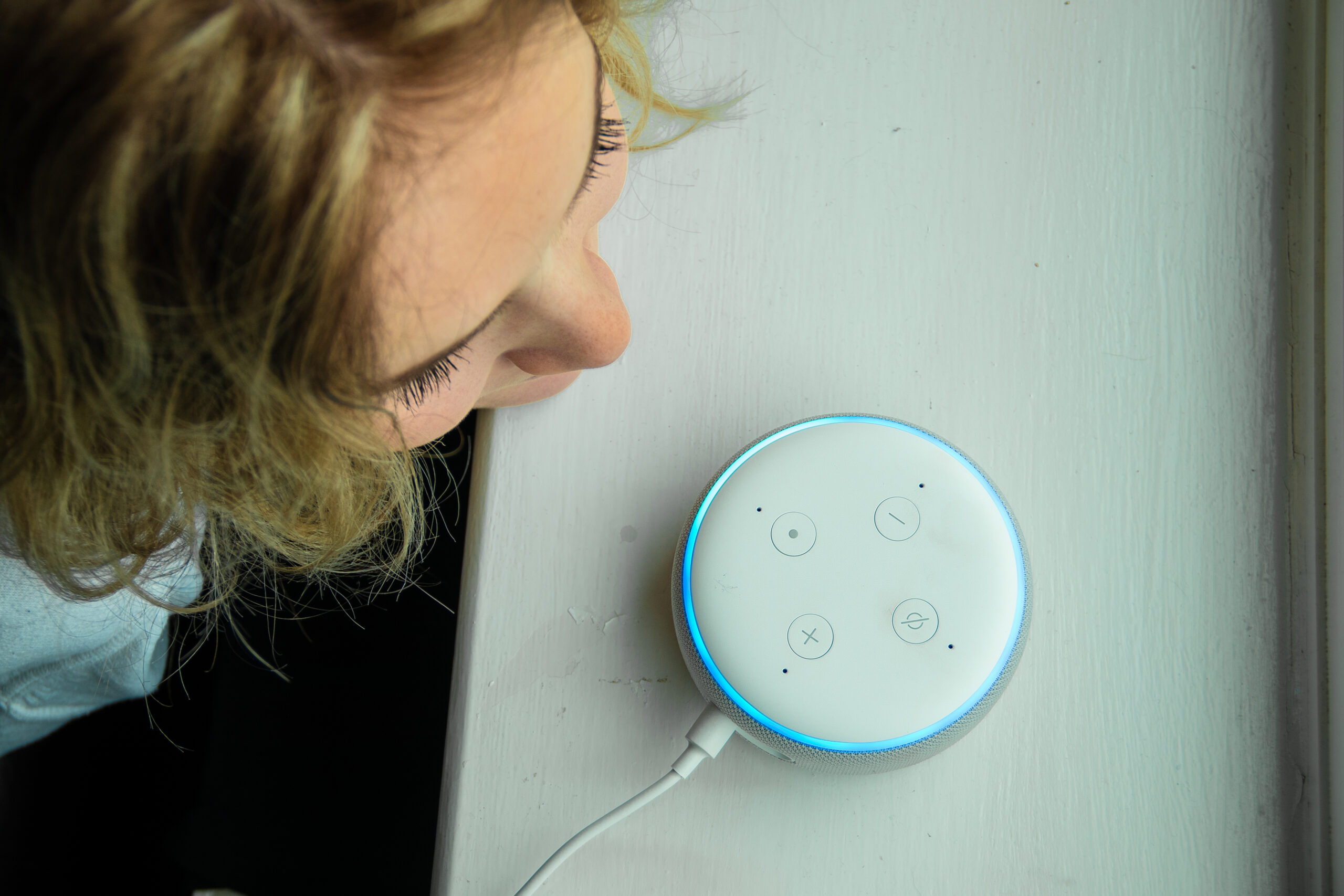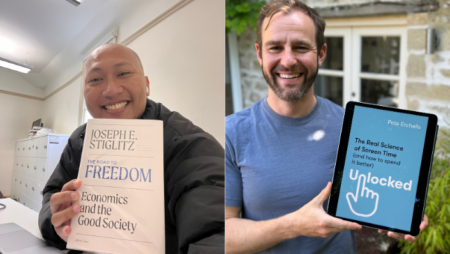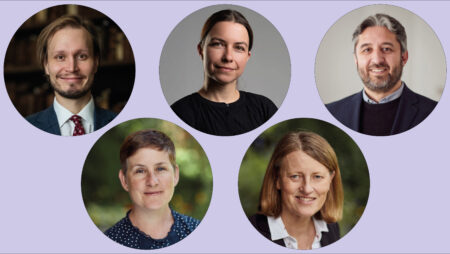


Ekaterina Hertog is the Associate Professor of AI and Society at the University of Oxford. Her research interests lie at the intersection of digital sociology and family sociology. Her current research explores how digital technologies transform family life, with a particular focus on the adoption and impact of AI and digital technologies in childcare. Her recent work examines the societal implications of digital monitoring technologies, investigating how these technologies affect parent-child relationships, children’s autonomy, and family well-being.
She has published a position paper on “Data Driven Parenting” as part of the British Academy Digital Good Society series and is developing a research programme on digital technologies in childcare. Her work on parental control technologies has received widespread media attention, including features in a BBC Ideas short film and podcasts by the Oxford Internet Institute and ParentZone.
This research builds upon her ESRC-funded DomesticAI project, which investigated how emerging technologies could free up or redistribute time currently devoted to childcare and housework, and examined individual attitudes toward domestic automation. The project generated several highly sighted papers in journals including PLOS ONE, Technological Forecasting and Social Change, and Community Work and Family.
Her earlier research includes a book published by Stanford University Press, “Tough Choices: Bearing an Illegitimate Child in Contemporary Japan,” which provides an in-depth analysis of Japanese women’s childbearing decisions and related value systems. She has also conducted studies on gender differences in time use in East Asia and analyzed digital dating records from a major Japanese matchmaker to examine partner selection processes. Her work appears in prestigious journals including the Journal of Marriage and Family, Demographic Research, and Gender, Work, and Organisations.
Ekaterina holds a DPhil and an MSc in Sociology from the University of Oxford.
Parental Control Technologies and Family Dynamics; Future of Unpaid Work; Technology in Everyday Life; Family Sociology; Time Use; Gender Practices in Households
Professor Hertog may not have capacity to take on new DPhil students for 2026-27 but would nonetheless be interested in hearing from highly motivated candidates whose proposals align closely with her current research areas. She is particularly interested in supervising doctoral research on how digital technologies are adopted within families and how they transform, and are transformed by, family relationships and dynamics.


This project investigates how digital skills develop in the absence of traditional family support structures and aims to identify any critical and overlooked gaps that emerge.

This programme supports research in the sphere of AI & Work.

With mobile devices ubiquitous among young people, it is not surprising that parents are increasingly turning to technology for help in childcare. This project examines monitoring technologies and how parents use them as part of child supervision.

With Dr Ekaterina Hertog and Dr Victoria Nash
How digital technologies impact young children, and new ways to think about the ethical and safety measures that govern their use of technology.

With Dr Ekaterina Hertog and Dr Victoria Nash
We welcome Professor Katya Hertog of the OII for the presentation of her paper on young adult users of Amazon's Alexa programme.

13 November 2024
A new study from AI experts at the University of Oxford and University of Melbourne reveals that men are much more likely to support the idea of being cared for in their homes by a robot when they are infirm or elderly, than women.

10 September 2024
As digital monitoring technologies become an accepted part of the digital parenting toolkit, a new blog from researchers Hertog, Weinstein and Zhao considers if should we be worried about their their long-term impact on children’s digital wellbeing?

15 August 2024
Looking for new reading recommendations for the summer months? The Oxford Internet Institute's faculty, staff, and students share their top picks.

29 April 2024
Five faculty members have received Dieter Schwarz Foundation (DSF) funding, enabling them to begin new 12-month research projects at the Oxford Internet Institute (OII).

CNA Insider, 21 February 2026
Watch the Channel NewsAsia’s (CNA) new documentary series, AI & Me, featuring expert comment from the OII’s Dr Ekaterina Hertog.

Euronews, 23 February 2026
The OII’s Dr Ekaterina Hertog comments on app store restrictions and the implications for parents and children.

Chatelaine, 24 May 2025
I'm profoundly challenged in the domestic arts. Could Gemini take the wheel? The OII's Prof. Ekaterina Hertog comments on the privacy implications of using AI to automate household chores.

DPhil Student
Lily is a DPhil student at the Oxford Internet Institute. Her research focuses on gender inequality and remote work.

DPhil Student
Ziyu Deng is a DPhil student in Information, Communication, and Social Sciences. She is interested in the relationship between offline social environments and the online reproduction and propagation of public opinions.

DPhil Student
Isabel is a DPhil student at the OII studying dating app design.

DPhil Student
Anju is a DPhil student at the Oxford Internet Institute funded by the ESRC Grand Union Doctoral Training Partnership. Her research focuses on voluntary digital disconnection in contexts of ubiquitous connectivity.

DPhil Student
YanQing Wang is a DPhil student and Shirley Scholar at Oxford Internet Institute. YanQing's research focuses on the algorithmic impact of AI-driven social media on public perceptions related to reproduction and marriage.

DPhil Student, Oxford Department of International Development

Former DPhil Student
Clementine is a former DPhil student at the Oxford Internet Institute. Her research focused on AI and gender.

Research Associate
Felix is a Research Fellow in AI and News at the Reuters Institute for the Study of Journalism and a former DPhil student at the OII. A former Leverhulme and Dieter Schwarz Scholar, he researches AI in journalism and the news.
This course is designed to give students hands‐on practice gathering qualitative data and provide students with the knowledge and skills to analyse various types of qualitative data analysis collected from both online and offline settings.
This course provides students with the opportunity to engage with the methodological, ethical and philosophical underpinnings of quantitative and qualitative social science research practices.